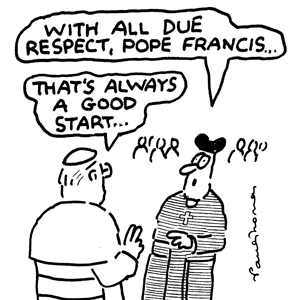A pastoral theologian with experience of both Heythrop College and Roehampton University reflects on the meaning of Catholic education after the failure of their partnership
Hope has two beautiful daughters. Their names are anger and courage.” So wrote St Augustine. As someone temperamentally unfamiliar with those feelings, I’ve been startled by the emergence of both, whenever anyone talks to me about the now apparently failed partnership between Heythrop College and the University of Roehampton. More troubling, I find the feeling of anger focused (perhaps mistakenly) on the pastors of the Church who appear responsible for blocking the decision. Encouraged by the words of St Augustine, I want try to express this anger in ways rooted in that great theological virtue of hope.
It is difficult to know where to begin making sense of what has happened, largely because of a lack of transparency regarding the place of our own bishops in the decisions. So, what I cannot do is respond in any informed way to what exactly has happened. All I can offer are reflections on what the failure of the Heythrop/Roehampton partnership means for us as a Catholic community. My basic thought is: we are on the edge of a calamitous diminishment of Catholic intellectual life, just at a time when we need it most.
27 July 2016, The Tablet
Ideas of a Catholic university
Future of Heythrop College
Get Instant Access
Continue Reading
Register for free to read this article in full
Subscribe for unlimited access
From just £30 quarterly
Complete access to all Tablet website content including all premium content.
The full weekly edition in print and digital including our 179 years archive.
PDF version to view on iPad, iPhone or computer.
Already a subscriber? Login



User Comments (1)